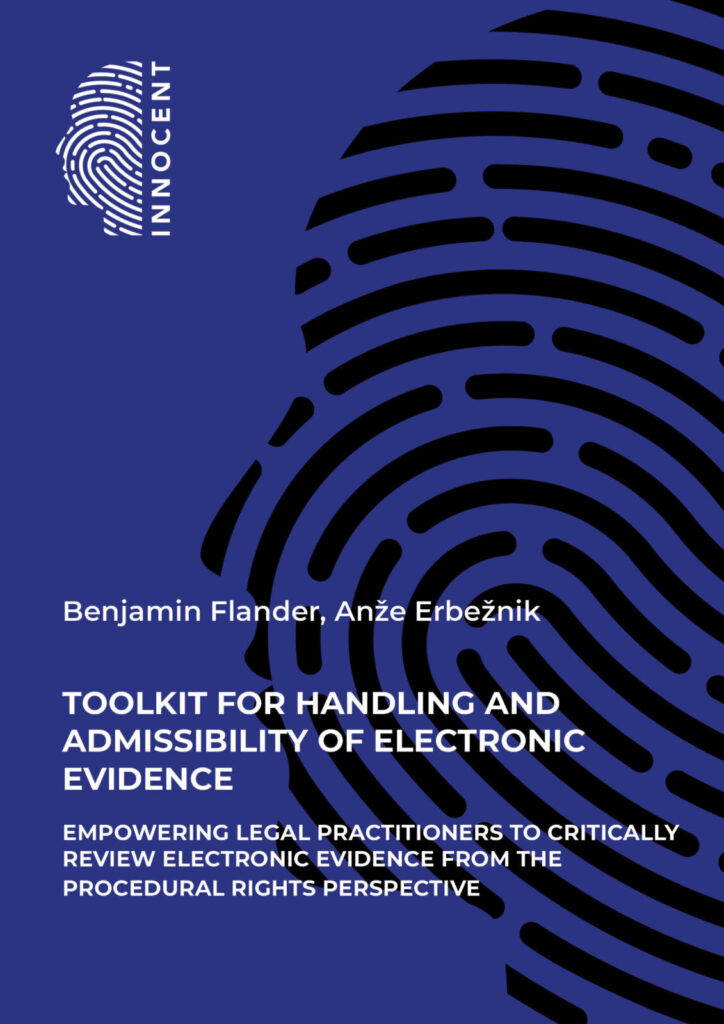As part of the INNOCENT project, ANNALES ZRS, the scientific publisher of ZRS Koper, has released a new online monograph in English titled Toolkit for Handling and Admissibility of Electronic Evidence: Empowering Legal Practitioners to Critically Review E-Evidence from the Procedural Rights Perspective.
The guide aims to improve the understanding of legal and practical challenges faced by judges, prosecutors, and defence attorneys in the collection of electronic evidence by law enforcement, judicial evaluation of the admissibility of electronic evidence, and cross-border access and exchange of electronic evidence. It briefly analyses related international research projects, both completed and ongoing, as well as guiding documents related to electronic evidence. The guide also includes a description of the international and EU legal frameworks and examines the constitutional concept of the presumption of innocence and fair trial rights that must be guaranteed to suspects and defendants in criminal proceedings. It also defines, traces the origins of, and outlines the types and different phases in the lifecycle of electronic evidence, highlighting the need for harmonization of legal practices among EU member states and the establishment of standardized procedures for handling electronic evidence at the EU level.
The guide aims to improve the understanding of legal and practical challenges faced by judges, prosecutors, and defence attorneys in the collection of electronic evidence by law enforcement, judicial evaluation of the admissibility of electronic evidence, and cross-border access and exchange of electronic evidence. It briefly analyses related international research projects, both completed and ongoing, as well as guiding documents related to electronic evidence. The guide also includes a description of the international and EU legal frameworks and examines the constitutional concept of the presumption of innocence and fair trial rights that must be guaranteed to suspects and defendants in criminal proceedings. It also defines, traces the origins of, and outlines the types and different phases in the lifecycle of electronic evidence, highlighting the need for harmonization of legal practices among EU member states and the establishment of standardized procedures for handling electronic evidence at the EU level.
The guide is available HERE.
The INNOCENT project (Improving the application of the presumption of iNNOCEnce when applying elecTronic evidence, No. 101056685) focuses on the procedural rights of suspects or accused individuals, particularly their right to the presumption of innocence until proven guilty. Researchers emphasize the importance of understanding and properly applying electronic evidence in criminal proceedings. Throughout the project, partner countries from Poland, Croatia, Slovakia, the Czech Republic, and Bulgaria have analysed the legal regulations and case law regarding electronic evidence in these countries, reviewed applicable and proposed international and European regulations and legal instruments, and examined the case law of the European Court of Human Rights and the Court of Justice of the European Union.

 en
en Slovenščina
Slovenščina Italiano
Italiano